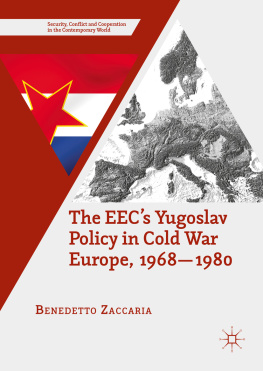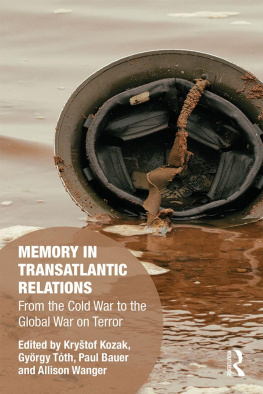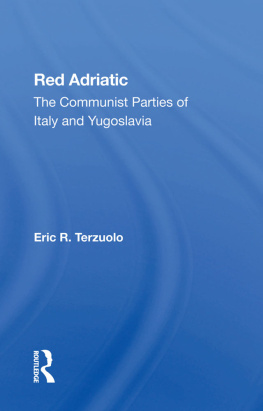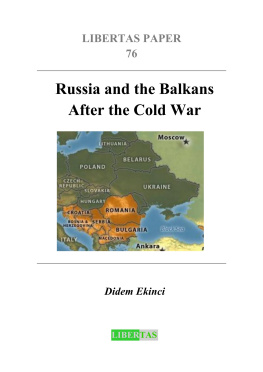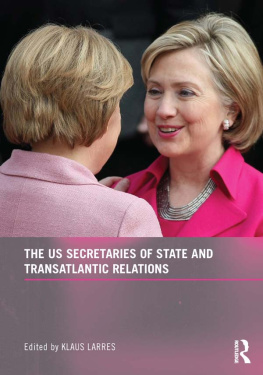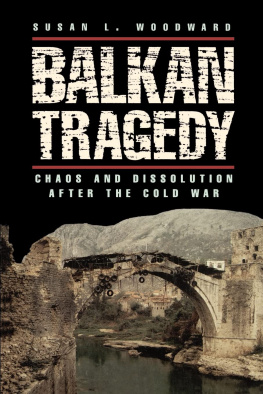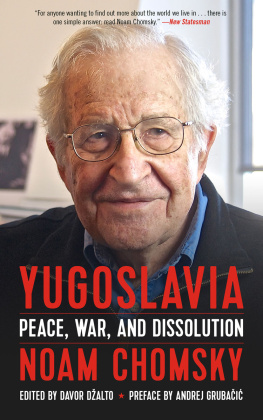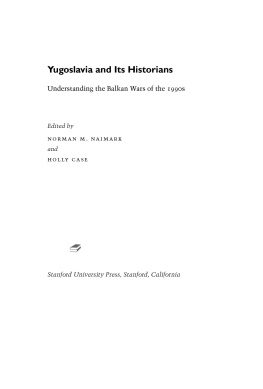1. Introduction
According to received opinion, the involvement of the EEC/EU in the political dynamics of the Socialist Federal Republic of Yugoslavia and its successor states goes back to the early 1990s, when Community representatives struggled to manage the violent disintegration of the Yugoslav federation through diplomatic mediation and economic countermeasures.
The present work, based on multi-archival and multi-national research, offers a new interpretation which contrasts with the above-mentioned view. Contrary to received opinion, it highlights the fact that the EECs Yugoslav policy was not only a matter of economic relations, nor was it based on a policy of neglect. Although the public sphere of this relationship did regard the economic sphere, this was nothing but the tip of the iceberg. Under the surface of the water lay the delicate, low-profile rapprochement between two differing political and economic systems, which was influenced by the Cold War environment in which it first developed. This work proves that the EECs active involvement in the Yugoslav question goes back to the 1970s. During this decade, the development of bilateral relations was impressive. In 1970 and 1973, the parties concluded two trade agreements, which represented unique examples of rapprochement between capitalist and socialist realities. In 1976, they signed a joint declaration which established the political foundation for bilateral relations. In April 1980, they concluded a broad cooperation agreement which would regulate the relationship between the parties until the dissolution of Yugoslavia in 1991.
The aim of this book is to examine the political rationale underpinning the Communitys attitude towards Yugoslavia in the course of the 1970s, that is, the formative decade of EEC-Yugoslav relations. It demonstrates that this relationship was grounded on a clearly defined political rationale which was closely linked to the evolution of the Cold War in Europe and the Mediterranean. The main argument is that the EECs Yugoslav policy was primarily influenced and constrained by the need to prevent the expansion of Soviet influence in the Balkans and to foster dtente in Europe.
As noted above, on the specific subject of EEC-Yugoslav relations during the Cold War years, the literature is very limited. The few existing studies on this theme go back to the late 1970s and early 1990s.
The present work is thus the first systematic historical account of the origin of EEC-Yugoslav relations in the Cold War era. Drawing on a Community-centred approach, it concentrates on how the interaction between EEC institutions, member states and Yugoslav representatives in both Brussels and Belgrade led to the constant development of the EECs Yugoslav policy. This policy was not fixed, but always in a state of flux. It was the result of a decision-making process involving several actors, and changed according to the evolution of European-integration dynamics and the Cold War. Indeed, in the case of the EEC policy towards Yugoslavia, these historical processes were two sides of the same coin.
As regards European integration, this work supports the view that the Communitys rapprochement to Yugoslavia was a political action conceived as part of the emerging ambition of the EEC to become an international actor with a well-defined identity.
The field in which the Community could deploy its international action was that of international trade, in which the EEC had direct competencies according to the Common Commercial Policy (CCP), as expressed in Arts. 110116 of the Treaty of Rome of March 1957. In this sphere, the complex bargaining process between the European Commission, the Council of Ministers, and COREPER, the Committee of Permanent Representatives responsible for preparing the work of the Council, resulted in the adoption of Community decisions regarding the opening, negotiation and conclusion of trade agreements with non-member countries. The Community could thereby emerge on the international scene as a single entity and be recognised as such by its partners. This work pays special attention to the interaction of the Communitys intergovernmental and supranational dimensions. Regarding the latter, it focuses on the European Commission, its commissioners in charge of external relations, and its officials in the Directorate General for External Relations (DG I) and External Trade (DG XI), who, according to the founding treaties, played the pivotal role of preparing and negotiating trade agreements and acted as true international representatives of the EEC.
As regards the intergovernmental dimension, research highlights how the interests and individual standpoints of the EEC member states were conveyed and discussed within the frameworks of COREPER and the Council itself, in order to explain the broader choices and strategies adopted at the Community level. This work takes into particular account the attitude adopted by Italy, the Federal Republic of Germany, France and the UK within the Community framework. During the period under scrutiny, Italy and the FRG were Yugoslavias major trade partners in Western Europe. Both pursued active national policies towards Yugoslavia. In particular, Rome was interested in regulating the question of the Italo-Yugoslav border in the area near Trieste, which had not been definitively answered by the 1947 Peace Treaty or the 1954 Memorandum of London.
Despite analysis of these different national positions, the books main focus concentrates on the EEC as such, considered as the original product, and not the mere arithmetical sum, of its member states foreign policies and the individual preferences of the EEC institutions, the European Commission in primis.
As noted above, the second process explored in this work is that of the Cold War in Europe and the Mediterranean. By virtue of their historical roots, both the EEC and Yugoslavia could not be immune to the evolution of the EastWest confrontation. The origins of the Community go back to the division of the European continent into two opposing blocs after World War II. Its establishment in 1957, after the signing of the Treaty of Rome between France, West Germany, Italy, Belgium, the Netherlands and Luxembourg, was consistent with the long-standing interest of both the USA and its Western European partners in fostering economic and political stability in the western part of the divided continent and, therefore, facing the Soviet challenge through the promotion of economic prosperity. In other words, the Community was one of the major pillars of the Western system, and was regarded as such by Moscow and its Eastern European satellites until the very end of the Cold War.
In turn, Yugoslavias internal and external positions had been intimately involved in the unfolding of the superpowers confrontation since immediately after World War II. After the rupture between Stalin and Tito in 1948, mainly determined by the Yugoslav leaders unwillingness to comply with Moscows hegemonic plans in Eastern Europe,
Analysis of how the evolution of the Cold War in the 1970s influenced the course of EEC-Yugoslav relations will be structured by three main questions. The first is the problem of Balkan and Mediterranean stability: the 1970s were indeed affected by political instability on the Mediterranean scene and by Western fears that the Soviet Union might advance its presence in the regions. Yugoslavias strategic position constituted an asset for the West which, however, could have swiftly turned into a liability should Belgrade have at any time abandoned its autonomous international course. Indeed, behind this first question, there lay a second problem: that of Yugoslavias transition from the Tito to the post-Tito era. The Yugoslav leader was born in 1892, and during the 1970s his age and precarious health represented a problem for the West: what would happen after Tito had gone? Would the post-Tito leadership continue to maintain Yugoslavias equilibrium between the two blocs, or would it surrender to the sirens of the Soviet Union, which, in Western eyes, had never abandoned its goal of drawing Yugoslavia back to Soviet orthodoxy? In turn, these issues were linked to the third Cold War question affecting the course of EEC-Yugoslav relations: the need to respect and maintain Yugoslavias non-alignment. As illustrated in the following chapters, the preservation of Yugoslavias non-aligned credentials was, at the same time, a major Western goal and a serious constraint to the development of economic negotiations between the parties.

